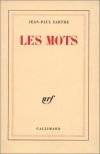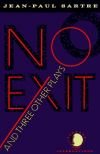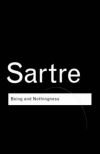
The Reprieve is a 1945 novel by Jean-Paul Sartre. It is the second part in the trilogy The Roads to Freedom. It concerns life in France during the eight days before the signing of the Munich Agreement and the subsequent takeover of Czechoslovakia in September 1938.

L'esistenzialismo è un umanismo è il titolo di una conferenza tenuta da Jean-Paul Sartre nel 1945, e della sua successiva pubblicazione in volume l'anno seguente.

The Wretched of the Earth is a 1961 book by Frantz Fanon, a psychiatric and psychologic analysis of the dehumanising effects of colonization upon the individual, and the nation, from which derive the broader social, cultural, and political implications inherent to establishing a social movement for the decolonization …

Jean-Paul Sartre's famous autobiography of his first ten years has been widely compared to Rousseau's Confessions. Written when he was fifty-nine years old, The Words is a masterpiece of self-analysis. Sartre the philosopher, novelist and playwright brings to his own childhood the same rigor of honesty and insight he …

The full French text of Sartre's novel is accompanied by French-English vocabulary. Notes and a detailed introduction in English put the work in its social and historical context.

Il muro uscito in Francia nel 1939, a un anno di distanza da La nausea, èprobabilmente l'opera letteraria più forte e rappresentativa del grandeintellettuale francese. Motivo comune dei racconti riuniti in questo volume èl'antitesi tra coraggio e viltà: una diversa attitudine, di fronte alla vitadei diversi …

L'essere e il nulla è un saggio di ontologia fenomenologica pubblicato da Jean-Paul Sartre nel 1943.

 English
English Español
Español Deutsch
Deutsch


